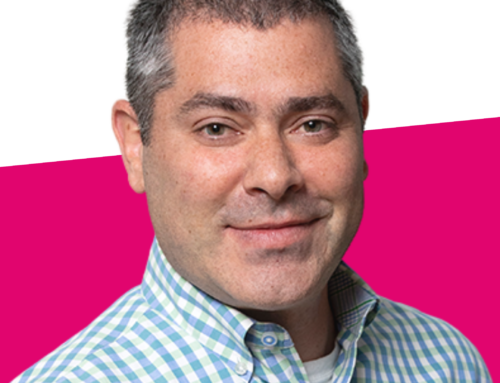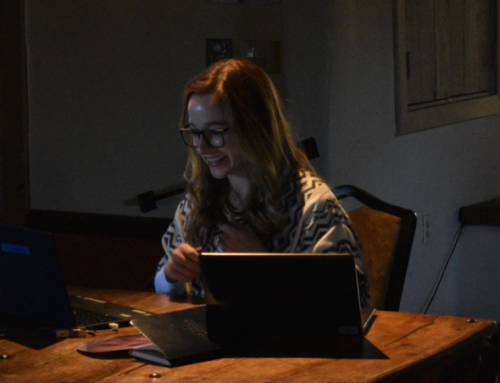by Jacob Watson, UpStart’s Director, Growth-Stage Programs
UpStart is committed to meeting the needs of social entrepreneurs at all stages of their trajectory. The program that I oversee, the Venture Accelerator, is a stop along that journey to a sustainable, thriving venture. This program meets ventures at their growth stage, a phase of development akin to our teenage years.
One of the approaches I have brought to this program from my experience as an educator is the notion of a spiral curriculum. Why a spiral? Traditional theories of learning frame the process as linear, where the learner progresses along a sequential continuum, beginning with introductory concepts in the early moments to more advanced ones later on.
A spiral curriculum is different. Research shows that we never gain full understanding of a topic the first time we encounter it; rather, it is through increasingly complex revisitation of the topic that we come to a deeper understanding. For instance, a child might learn about shapes in kindergarten: circles, squares, triangles. But there is always more than meets the eye. That same child will come to understand how certain types of triangles will always combine to make perfect squares—and the utility of this fact for something like tile-making— as they progress through the study of geometry. In a well-designed course of study, this increasing sophistication will also parallel their own cognitive development.
Scaffolded Learning
What does this mean for the social entrepreneur? It means that venture leaders need access to ongoing, scaffolded (i.e., building on prior knowledge) opportunities to develop their understanding and application of relevant topics over time.
It’s not enough to cover a topic like board development or financial management in a singular webinar. Instead, the entrepreneur must peel back the layers with emerging complexity as their venture understanding grows increasingly sophisticated.
For example, an idea-stage venture leader who is forming a nonprofit will be concerned with building an executive board. At that time, the concern may be around how to find enough people in their network willing to support their venture. That same leader may revisit the challenge of board development in their growth stage from a more nuanced angle. The growth-stage venture leader may begin to look more critically at who is on their board, asking questions like: are these the right individuals to support my organization’s goals for the future? What skill sets, personalities, or functions might I be missing?
Turn It Over
This is not just good pedagogy; it’s also grounded in Jewish wisdom. In Pirkei Avot, Rabbi Ben Bag Bag teaches: “Turn it (Torah) over and turn it over, for everything is in it. Pore over it, grow old and weary in it, and stir not from it, for you have no better rule than it.” I take this to mean that there is always something new for us to learn in revisiting familiar material. This is possibly my favorite thing about learning, and about being in a role where I facilitate the learning of others: the task is never done.
A spiral curriculum means turning ideas over and over. It means recognizing that the learning of social entrepreneurs does not begin or end with one particular program—and neither should their funding.
Making Space for Prior Knowledge
When I met with the leaders in this year’s Venture Accelerator cohort, I learned two interesting things: first, a large number of them are second-career social entrepreneurs; in other words, before they decided to lead a new venture, they were consultants or rabbis. I am told this is common. It makes me think about the rich body of experience and insight these leaders will be bringing to our work together (what we in education call “funds of knowledge”). These social entrepreneurs are not starting from scratch—and our curriculum needs to make space for all the ways in which they may have visited its topics in their past careers.
Second, a majority of these ventures were birthed or experienced significant expansion during the pandemic. Unlike the previous cohort, many of them have never really built an in-person programming model. They are leading in the “wilderness” of a COVID-marked world, as past UpStart participant Rabbi Danny Burkeman has so aptly written.
For them, topics like business model and scale strategy will take on new meaning as our world continues to change in unpredictable ways. They will no doubt need support to revisit the teachings they gain in this program from new vantage points, long past the conclusion of our particular cohort.
Opportunities
The good news is that there will be plenty of opportunities—both within UpStart’s offerings and beyond—to revisit such ideas, if we approach them in such a way that acknowledges this need for ongoing development and support. From our idea and early stage all the way up through “mezzanine” organizations, being a social entrepreneur is no easy task. It requires courage, fortitude, perseverance, and the willingness to be wrong. In reality, these are lifelong pursuits. What UpStart can offer is a strong nudge along this path and a powerful foundation for the ongoing journey. I hope they enjoy the trip.
Our purpose is to enable entrepreneurs to bring bold Jewish ideas to light. We help them reach Up to people in new ways that are meaningful, more inclusive, and create a brighter future for our Jewish community and the world we share.





